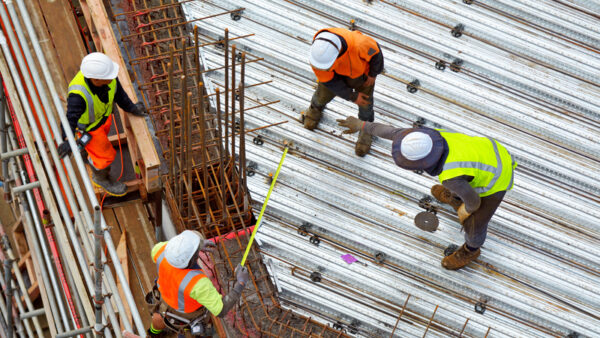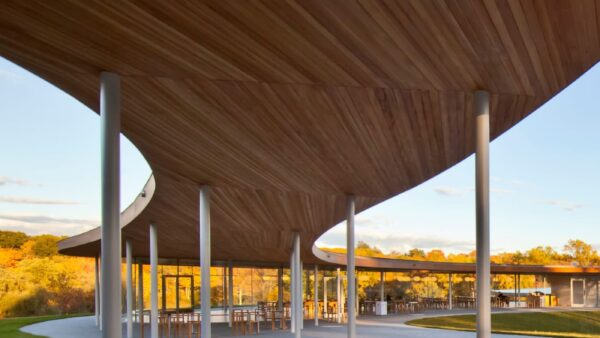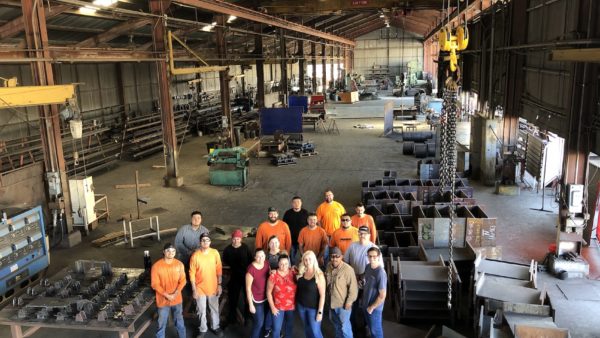
Like many people, I’ve been concerned about the climate crisis for a long time.
But also like many people, I could compartmentalise. Sometimes it’s top of my mind, other times it’s a somewhat niche concern.
This week, that changed.
In putting together June’s 21CC podcast, Should we just stop building?, I had the chance to speak to people whose job it is to think about climate and construction, and suddenly it felt a lot more real and immediate.
Because it is real and immediate.
Construction is the single biggest source of greenhouse gases, according to the UN Environment Programme.
It produces vast amounts of waste.
The resource extraction needed to feed its inputs severely damages habitats and biodiversity.
When every cubic metre of concrete poured makes the world a more dangerous place for our kids, at what point is enough enough?
Global context
One of our guests, Will Arnold, head of climate action at the Institution of Structural Engineers, helped me see the global situation more clearly.
He pointed out that only about a quarter of the world’s population live in the so-called ‘global north’. That includes me.
We hold about 80% of the world’s wealth, and produce more than 90% of the world’s carbon emissions.
Meanwhile, the three-quarters of the world’s population that live in the so-called ‘global south’ produce hardly any emissions but are in the firing line of the worst impacts of global heating.
“So, the onus has to be on countries like ours to decarbonise far more aggressively and far more quickly than other parts of the world,” Will said.
Manifesto for construction
All our experts agreed that it’s not feasible to just stop building.
But Will proposed three actions we can all do to begin getting a grip on the situation: Use less stuff, do more good, and speak up now.
I think this could work as a manifesto for construction in the climate crisis.
Use less stuff
“We should only be building the things we need,” Will said, “and in the UK we’ve got hundreds of thousands of empty buildings currently and yet we’re also talking about needing to build hundreds of thousands of new buildings, and somehow we don’t connect those dots.”
One way to think about it, he said, is to decouple what we assume are needed outputs from the desired outcomes.
If so many thousands of people lack adequate housing, it doesn’t necessarily mean we need to build so many thousands of new houses in the way we traditionally have.
Adequate living space is what’s needed, so how can we use what’s already built to start providing that? (The podcast has a frank discussion about office-to-home conversions.)
- You can listen to the podcast here
Do more good
“I think we’re focussing on completely the wrong thing when we talk about doing less bad,” Will said.
“If humanity stopped emitting carbon dioxide tomorrow, it would take until the middle of the next century before levels return to preindustrial levels, so clearly we need to do the opposite and start taking it out of the atmosphere.
“So we have to have an ambition that our projects become regenerative, that they do more good than harm, that they become wholly good.”
That includes using materials and processes that sequester carbon and enhance habitats, he said.
Speak up now
This one is scary. It means the buck stops with each of us.
“If you are practising on a project and you’re being asked to do the wrong thing, it is completely incumbent on you to say that,” he said.
“If the client is saying to you, ‘Yes, but we really just want to be able to demonstrate that it makes more sense to knock it down and start again from a whole-life carbon perspective, can’t you make the numbers work?’, you need to speak up and say no, I can’t just make the numbers work. This is the truth, and if you don’t pick this, we’re going to walk away from the project.”
Reason for optimism
I expected to find the discussion depressing, but it wasn’t.
It left me feeling clearer, energised, and optimistic.
A terrible challenge becomes less terrible when you know how to start mounting a response to it.
- Sign up to our free email newsletter to get construction stories from around the world sent to your inbox three times a week.
Comments
Comments are closed.











The option to “stop building” is probably not an option that many of us – particularly in the construction industry would not want to hear! In England we repeatedly get told by all Governments, Councils, and others that we need more houses / homes, for people, and as a consequence – more jobs, which in turn requires more infrastructure – roads, bridges, tunnels etc. to reach the new buildings. If we don’t continue building where would people live or work, or how would they get around without the infrastructures necessary.
No body, organisation, government or contractor would carry out building works of these categories if they were not necessary. Nobody is going to throw thousands or millions of pounds into these works if they are not necessary, we can’t utilise them or they are not necessary. Somebody needs to rethink this idea.